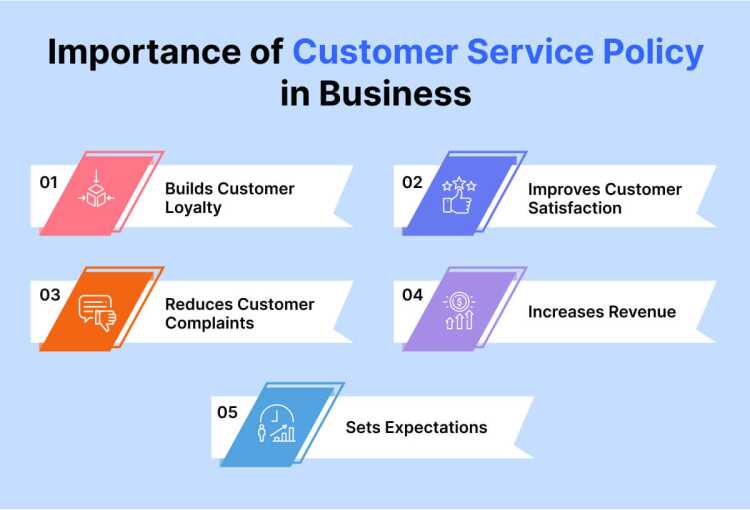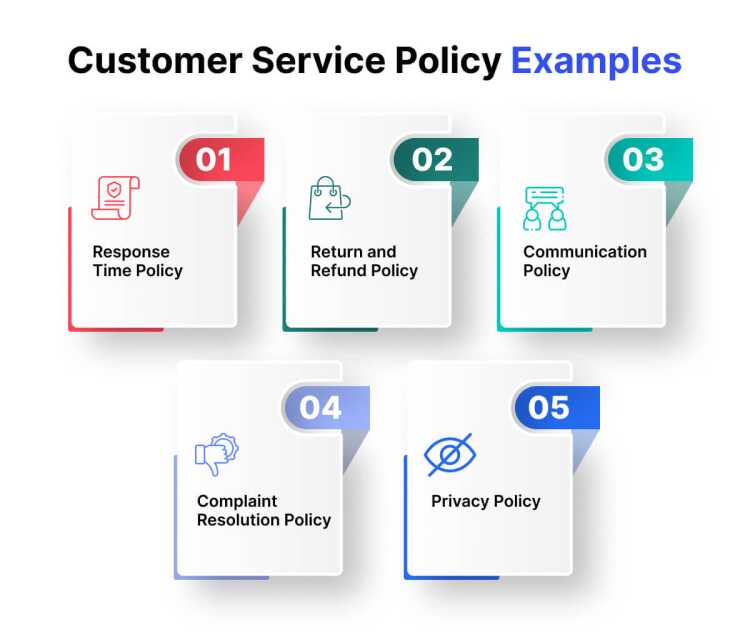

A well-crafted customer service policy should not only outline how the company plans to address customer issues and complaints but also how it plans to proactively anticipate and prevent them in the first place. In today’s competitive marketplace, excellent customer service can be the key differentiator that sets a business apart. Whether you’re a small business owner just starting out or a seasoned executive looking to revamp your company’s customer service strategy, read on to discover how you can improve your customer service and grow your business!
Customer service policy is all about the guidelines and procedures that a company creates to ensure that its customers receive high-quality service and support. The policy outlines the company’s commitment to meeting customer needs and resolving their issues in a timely and effective manner. A well-designed customer service policy should cover all aspects of customer interaction, from initial inquiries and product/service purchases to post-purchase support and follow-up. It should also provide clear instructions on how customers can reach out to the company for assistance and how their concerns will be handled. It can help a company to build a loyal customer base , improve its reputation, and ultimately, drive sales and revenue growth. It can also help to minimize negative customer experiences and complaints, by ensuring that all customer interactions are handled professionally and consistently.

Customer service policies are essential for any business that wants to build a positive reputation and cultivate a loyal customer base. Let’s take a look at some of the key reasons why customer service policies are important:
If you want to develop a solid customer service policy for your organization then you have to follow a set of guidelines and procedures to ensure that it delivers high-quality customer service.

Let’s take a look at some steps to help you develop a customer service policy:
Before creating a customer service policy, it’s important to identify the target audience you’ll be serving. This could be your current customers, potential customers, or a specific group of customers based on demographics or behavior. Understanding your target audience will help you create a policy that is tailored to their needs and preferences.
Once you’ve identified your target audience, you need to define the scope of your customer service policy. This involves outlining the specific areas of your business that the policy will cover, such as phone support, email support, social media, returns, and exchanges.
To create an effective customer service policy, it’s important to gather input from a variety of sources. This could include feedback from customers , data from customer service interactions, and input from employees who have experience dealing with customers.
Based on the input gathered, you can define the customer service principles that will guide your policy. This involves identifying the values and beliefs that will drive your customer services interactions, such as empathy, respect, and responsiveness.
With your customer service principles in place, you can develop specific standards that will govern your interactions with customers. This could include response times for different channels, resolution times for different types of issues, and quality standards for customer service interactions.
Once you’ve established your customer service standards, you need to define the procedures that will help you meet those standards. This involves outlining the specific steps that employees should follow when interacting with customers, including how to handle different types of issues and how to escalate problems when necessary.
You need to develop training and development programs to help employees learn and implement your customer service policy. This could include training on communication skills , conflict resolution, and product knowledge, as well as ongoing coaching and feedback to help employees improve their customer service skills over time.
A business can implement many different types of customer service policies, depending on its industry, size, and customer base.

Let’s take a look at some examples of customer service policies that businesses can consider:
A well-defined customer service policy can offer numerous benefits to a business. Here are some of the key benefits:
Having a well-defined and customer-oriented service policy is crucial for any business that wants to thrive in today’s competitive market. It not only helps in retaining existing customers but also in attracting new ones by creating a positive brand image .
A good customer service policy should include clear guidelines on how to handle customer inquiries, complaints, and feedback, as well as set expectations for response times and problem resolution. It should also empower employees to go above and beyond in ensuring customer satisfaction while maintaining a professional demeanor.
Customer service policy is not just a document but a commitment to providing excellent customer service, and it should be at the heart of any business’s operations.
Start a 14-day free trial, no credit card required
Juwel is a Sr. Content Writer at REVE Chat. He specializes in writing about customer service and customer engagement. He is passionate about helping businesses create a better customer experience.
He strongly believes that businesses will be able to understand their customers better and ultimately create more meaningful relationships with them.